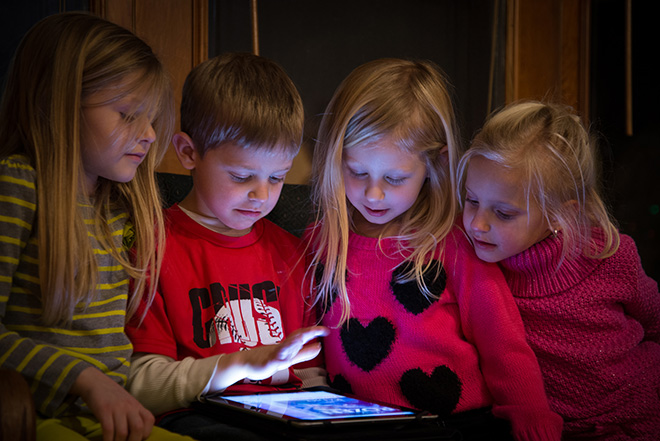$1 million for primary kids’ digital literacy research

An Australian Research Council (ARC) Future Fellowship awarded to Australian Catholic University’s (ACU) Prof Kathy Mills will drive a project exploring how harnessing all the senses can enhance the digital literacy of primary students.
A professor of literacies and digital culture at the Institute for Learning Sciences and Teacher Education (ILSTE), Mills will benefit from almost $1 million to support the four-year research project.
Prof Wayne McKenna, Deputy Vice-Chancellor (Research) applauded the funding announcement which recognises the cutting-edge nature and likely impact of the research conducted by the ILSTE:
"We are pleased to announce that Institute for Learning Sciences and Teacher Education researcher, Professor Kathy Mills has been awarded a $974,636 Australian Research Council (ARC) Future Fellowship to support her research, entitled ‘Sensory Orchestration for Multimodal Literacy Learning in Primary Education.’
"This project aims to advance new learning and pedagogical models of sensory orchestration for the enhanced multimodal and digital literacy learning of primary students.
"The aim of the Future Fellowships scheme is to attract and retain the best and brightest mid-career researchers. This success attests to ACU’s strong intellectual environment, generating innovative and internationally competitive research.”
Mills has published over 90 works and is known internationally for her expertise in written communication, children’s digital technologies and literacy.
She was recently recognised for leading the SELFIE (Strengthening Effective Language of Feelings In Education) Project which used animations, photography, videos and emojis from smart phones, to rapidly increase the use and command of the English language for more than 200 primary school students across three low socioeconomic schools.
She said she was honoured to receive such a prestigious fellowship to support a project which will involve research in six different countries and promises to benefit schools, teachers, students and industry partners.
“Primary students today have digital lifestyles at home, school, and in public spaces, and are accessing multimodal texts such as video-sharing sites from before the age of eight,” she said.
“Every day literacy practices are both digital and multimodal – combining modes that include written and spoken language, images, gestures, touch, movement, and sound.
“This project develops students' sensory literacies with touch-screens and novel technologies, such as virtual and augmented reality, which often involve engagement of the whole body in communication.
“I will be working with around 400 students and 18 teachers from state and independent sectors in Australia and the USA to develop, implement, test, and refine innovative sensorial education programs in primary schools, digital labs, and art museums.”
The grant was part of more than $180 million in funding announced by Minister for Education and Training Simon Birmingham to boost 132 new research projects.